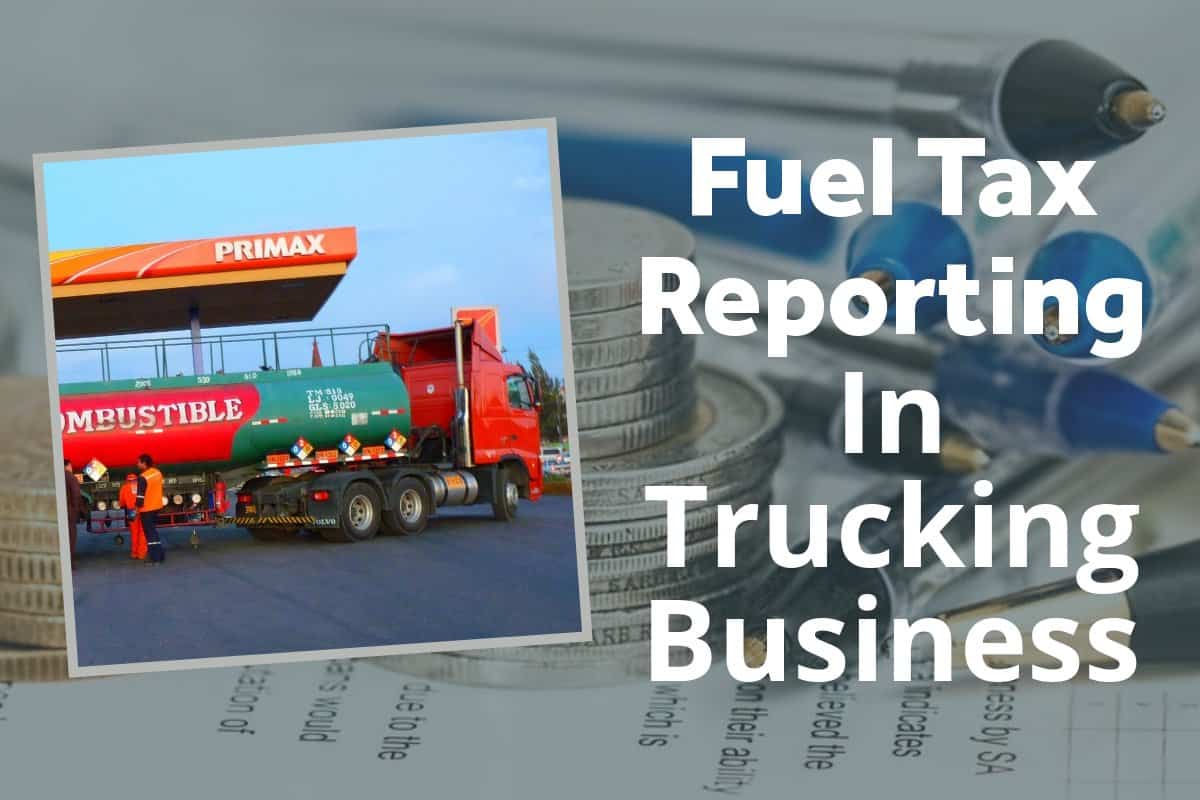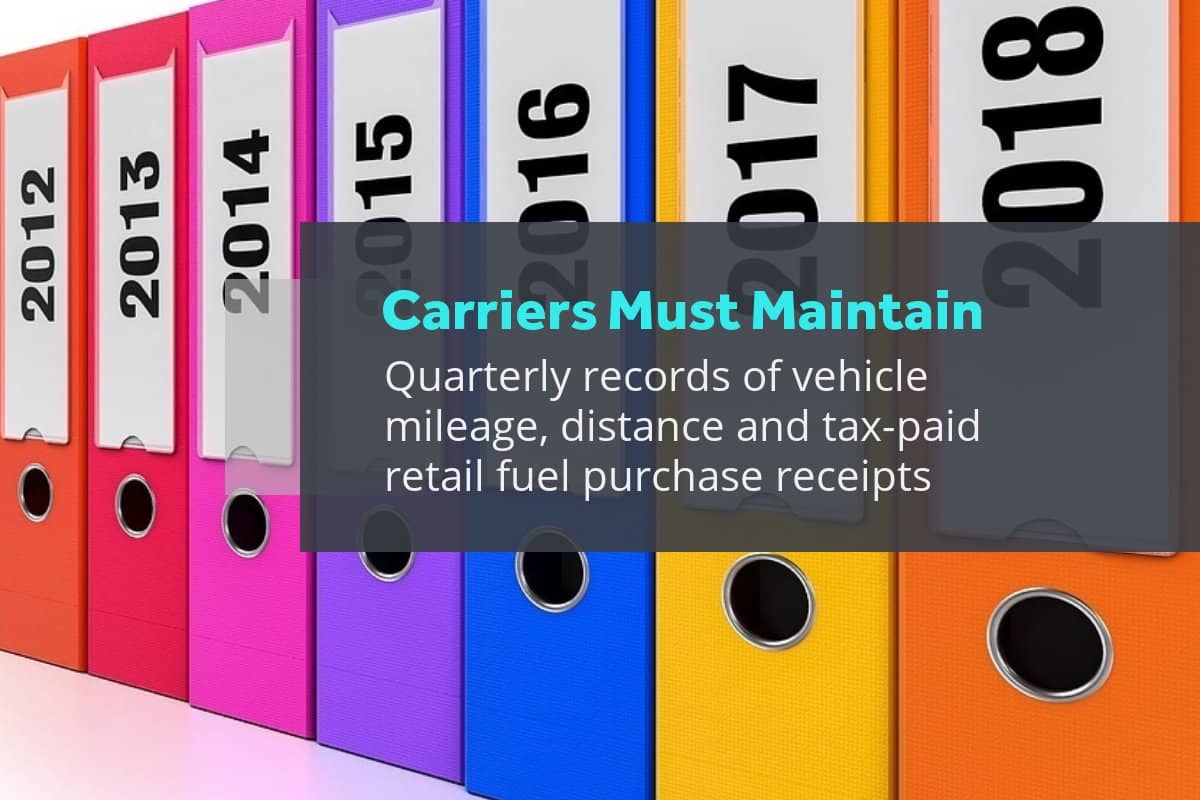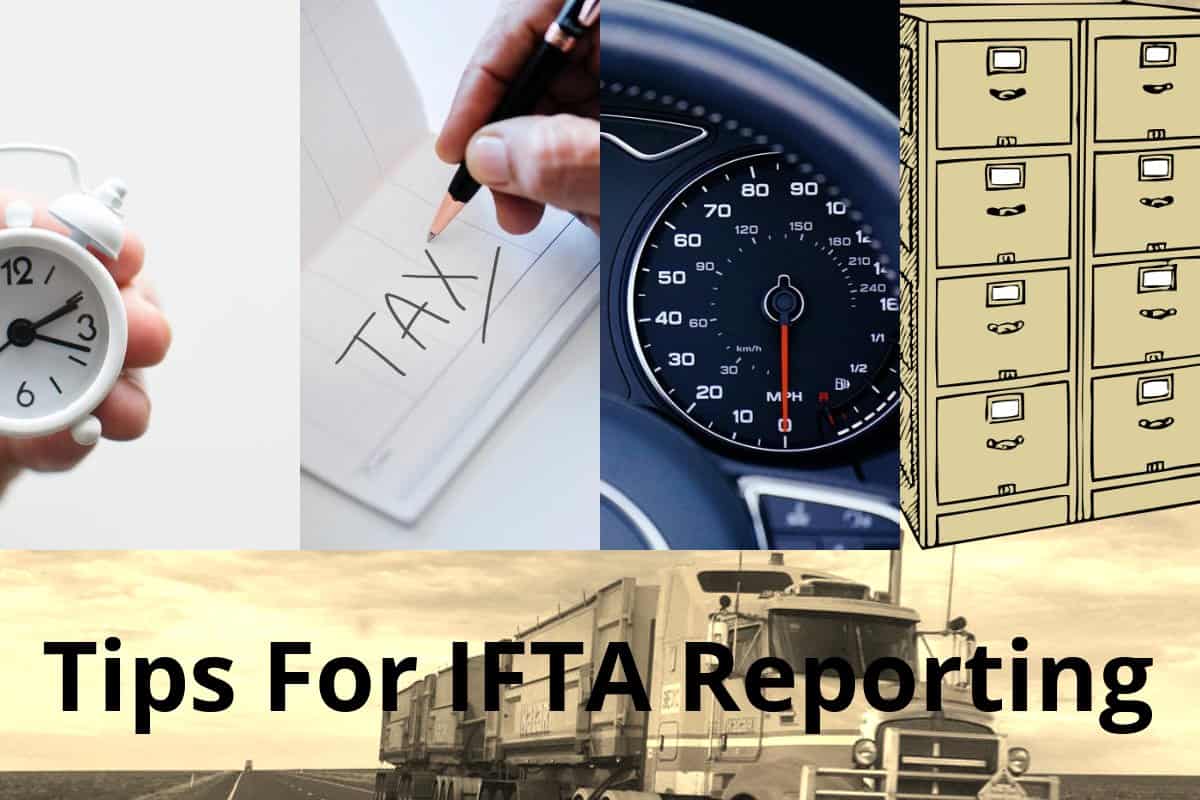Fuel Tax Reporting in Trucking Business

Fuel reporting is important as the money which is generated from fuel taxes goes towards construction and maintenance of highways, roads , bridges and other transportation networks across the nation. Accurate records of fuel purchases, miles run and fuel mileage in each state help calculate the exact fuel tax amount due in each state, which is paid four times (in every quarter) in each fiscal year.
Previously all states had their separate fuel tax laws and standards and fuel tax reporting was individually done for each state. This created trouble for most motor vehicles as each state had different (and sometimes contradicting) fuel tax regulations. In 1968, American Association of Motor Vehicle Administrators (AAMVA) formed a subcommittee to form fuel tax laws acceptable to all states and jurisdictions. In 1986, the IFTA (International Fuel Tax Agreement) was adopted and has been in effect since then.
The IFTA, works to standardize the varied (and often contradicting) laws that many states (48 American states and 10 Canadian provinces) created. Over time, all states have become members of IFTA and gotten rid of most of their own IFTA mandates. Some states have additional requirements for the fuel tax reporting, but the process, as a whole, has become a lot simpler.
Steps For Fuel Tax Reporting
1. Register a base state
When your trucking company operates in many states, it becomes difficult to know which state you should register in. An easier option would be to open an office or a place of business in one place, and register your vehicles and maintain your mileage records in that state. It’s best to contact the local register in the base state in order to register your vehicles in one or multiple states (if and when necessary).

2. Qualified Vehicles
IFTA specifies the parameters to be specified as a qualified vehicle. The parameters mention that the vehicle needs to travel in at least two IFTA jurisdictions and should weigh over 26000 pounds or have 3 or more axles. It could also be a bus that can carry at least 20 passengers. Some jurisdictions require the vehicle to be fueled by diesel, natural gas or propane, while others require gas-powered ones to be licensed for tax reporting.
3. License Application and Yearly Renewal
Every vehicle should apply for an annual license. This license is validated with two decals, one on the left door and the other on the right door. Contact the local DMV (Department of Motor Vehicles) for the application for license of a new vehicle. The IFTA then sends the renewal application every year after that. Once approved, the vehicles must always carry a copy of the license.
4. Quarterly Reporting Of Fuel Tax
Four times every year, every carrier is required to submit a fuel tax report which covers all of its registered and qualified vehicles. A check must accompany each report to cover any due tax payment – usually payable to the base state’s Secretary of State. If you have an accumulated tax credit from tax-paid fuel and if it exceeds the payment you owe, a refund or additional credit will be given to cover future payments.

5. Refunds
In order to receive the refunds or tax credits, receipt information from tax-paid purchases should accompany the quarterly fuel tax report. The receipts should have the date of purchase, fuel type, seller’s name and address, purchasers name, vehicle registration number, the total amount of sale and gallons purchased.
6. Mileage Reports
All carriers must maintain records of the each vehicle’s mileage reports, in addition to the fuel tax reporting. The mileage reports must be summarized monthly and have information of all the fuel bought at different service stations.
Guidelines For Fuel Tax Reporting
- IFTA applies strictly to vehicles used for commercial purposes. For eg.- RVs, campers and truck combinations, and buses which are used for commercial purposes.
- Every owner of a qualified motor vehicle (even if the vehicle is not used for commercial purposes) must submit tax reports as long as it is operational. Trucks which are used for commercial purposes must submit reports every quarterly.
- Fuel Tax Report should list the miles travelled and the gallons of fuel purchased in the participating jurisdictions. To maintain a clean record with IFTA, it’s wise to keep quarterly records of vehicle mileage, distance and tax-paid retail fuel purchase receipts.
- Due Dates for filing reports are:
- January through March – April 30th
- April through June – July 31st
- July through September – October 31st
- October through December – January 31st
- The IFTA decals expire on December 31st each year. The carriers have till the end of February to re-register.
- If you drive through different states, one or more of them might owe you a refund due to the “Fuel Tax Equalization” principle. To receive all the refunds, the carrier needs to keep a complete and accurate record of the mileage and the fuel purchased in each state.
- Not filing IFTA reports or paying the fuel taxes can result in a penalty and interest and even escalate to IFTA license being cancelled.
- IFTA is not valid in the following places:
- Canada : NorthWest Territories, Nunavut, Yokun Territory
- United States: Alaska, Hawaii, District of Columbia
Tips for IFTA Reporting
- Always file your quarterly IFTA taxes on time. Never wait for the last date.
- Record every mile and distance travelled.
- Always document your odometer. Don’t rely on your GPS. Technology is known to misbehave.
- Don’t estimate the fuel calculations. Be accurate.
- Maintain a file and keep all your fuel purchase receipts safely in it, for at least 4 years.
- File your IFTA returns on time and avoid the penalty and interest.
- For efficient systemization of the whole process, you can use smartphone applications designed for IFTA reporting such as IFTA Plus.
- Use daily trip reports for maintaining logs.
- All miles must be recorded, loaded or empty.
- IFTA report is not a last minute thing. Keep record of each mile a vehicle covers and each gallon of fuel purchased. Rounding off should not be confused with estimation.
The IFTA rules are extremely specific and at times frustrating but when you compare them with the process of complying with the parameters set by multiple states, IFTA’s regulations are a welcome thing.
© 2008-2018. All Rights Reserved by Cunningham Trucking, Inc. & Westernston, Inc.

